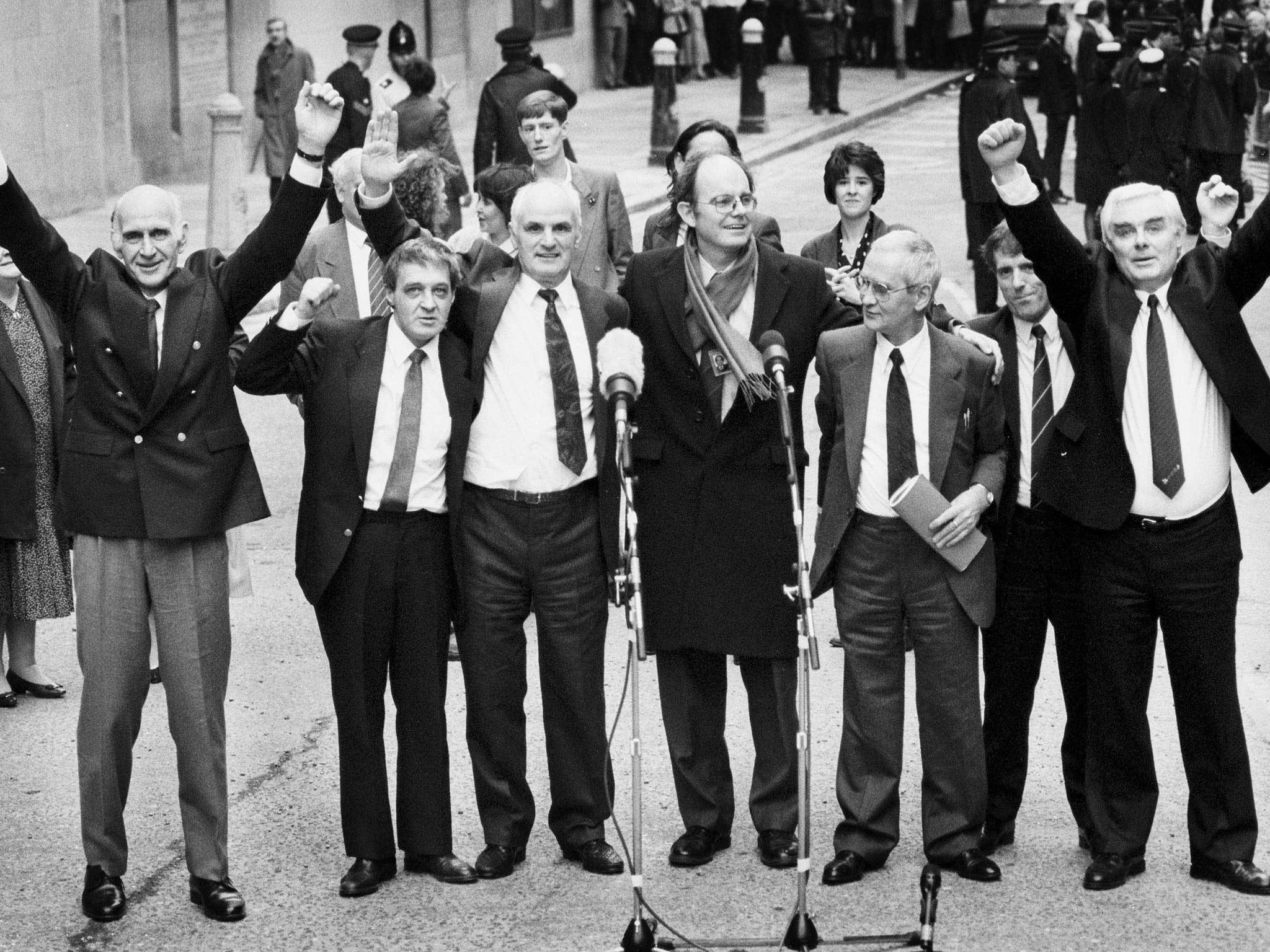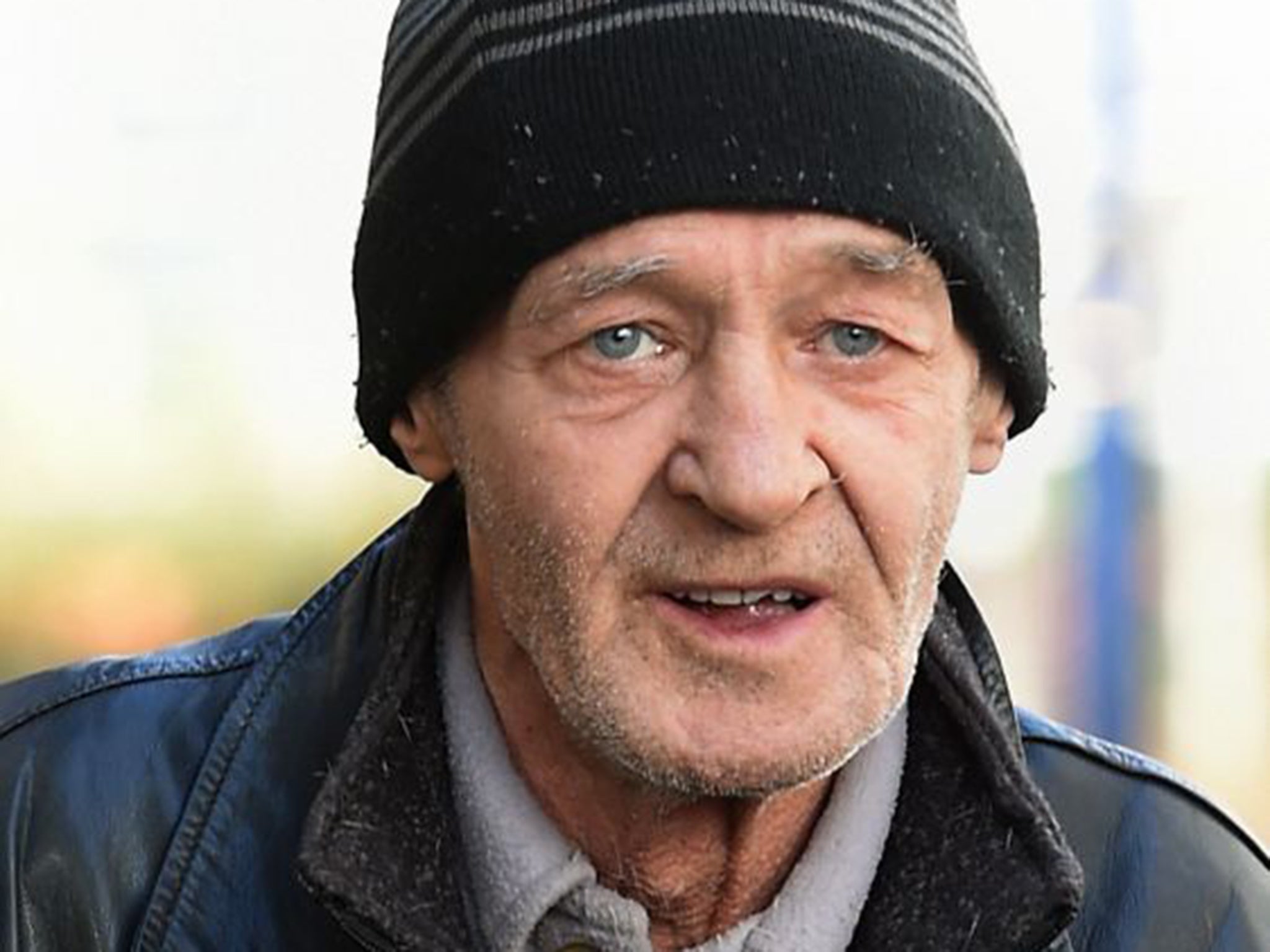Birmingham Six member Paddy Hill on why the challenges facing the wrongly convicted are more severe than ever
The exoneration of the men jailed for the Birmingham pub bombings remains UK’s most notorious miscarriage of justice

It is a quarter of a century since the six men wrongly convicted of the 1974 Birmingham pub bombings walked free from prison, but according to one of them the challenges facing victims of injustice are more severe than ever.
On 14 March 1991, Hill, together with Hugh Callaghan, Richard McIlkenny, Gerry Hunter, Billy Power and Johnny Walker stood outside the Old Bailey, free after 16 years behind bars. Only minutes earlier their convictions for the murder of 21 people in blasts that tore apart two pubs in the West Midlands city had been dramatically overturned.
The exoneration of the Birmingham Six remains the country’s most notorious miscarriage of justice, a case that fundamentally changed the criminal justice system. Such was the level of outrage that a royal commission was quickly established and that, ultimately, led to the creation of the word’s first independent, state-funded body to investigate alleged miscarriages of justice.
“Our criminal justice system is probably one of the best in the world,” says 71-year-old Mr Hill. “It’s not the system that’s wrong. It is the bastards who sit on the bench who are indoctrinated into preserving the status quo.”
Hill quotes the infamous words of Lord Denning who said in 1988, in relation to the Birmingham Six case, “hanging ought to be retained for murder most foul”. The peer added: “It is better that some innocent men remain in jail than that the integrity of the English judicial system be impugned.”
Nothing much has changed, says Mr Hill. As for the Criminal Cases Review Commission (CCRC), the miscarriage watchdog established in 1997 on the recommendation of the Runciman Commission, he calls it a “bastardisation” of the original proposals. Mr Hill claims the government of the day “only did half the job” and should have instead designed a system truly independent of the courts.
The CCRC “hasn’t got the balls to stand up to the Court of Appeal”, Mr Hill says, adding that the judiciary appears as unreceptive as it ever was to hearing miscarriage cases.

“In so many of these cases, the appeal court has had one chance after another to put it right and they don’t.”
Despite all the successful appeals in the past 25 years, “not one police officer has stood trial [in relation to a miscarriage of justice]. Not one has gone to prison.”
Over the past year, The Independent on Sunday has highlighted the cases of Victor Nealon and Sam Hallam, victims of miscarriages of justice who have been denied compensation by the Ministry of Justice under a new law passed by the Coalition government.
The Antisocial Behaviour, Crime and Policing Act 2014 restricts compensation to those who can demonstrate “beyond reasonable doubt” that they did not commit the offence. Mr Nealon was released from prison after 17 years when his conviction for attempted rape was overturned on the strength of a DNA test.
Sam Hallam, 28, was 17 when he was convicted in relation to a gang-related murder in the East End of London. Thames Valley Police, instructed by the CCRC, interviewed 37 people at the crowded murder scene who all said Hallam wasn’t there. Shockingly, both men have been denied compensation by the Ministry of Justice under the new law. Last week, the pair took their challenge to the new scheme to the Court of Appeal in a test case.
Mr Nealon, 54, left HMP Wakefield in December 2013 at only three hours’ notice, with £46 in his pocket and a train ticket to Shrewsbury. Paddy Hill left the Old Bailey with nothing more than the clothes he stood in plus a travel voucher, also for £46. After 10 years, the Birmingham Six were finally awarded compensation ranging from £840,000 to £1.2m.
Mr Hill visited Mr Nealon in prison and has supported Mr Hallam’s campaign. “According to the Government, Victor and Sam aren’t ‘innocent enough’,” he says. “It’s disgraceful. The Government might as well have said that the police have got the right to take you off the streets, lock you up for years and throw you out at the end.
“Look at the Marchioness disaster, the Paddington rail crash, Lockerbie, Dunblane, etc – as soon as these tragedies happen the Government sends in counsellors for the people who were injured and their families. They never offered us any of that. The reason for that is simple: we are victims of the state. If they help us, then it’s an admission of guilt.
“We have never been offered any help, nothing. Even though the British establishment admits they owe us a duty of care, they say they haven’t got any money.
“They have plenty of money to go bombing Syria.”
Mr Hill, who set up the support group Mojo (Miscarriages of Justice Organisation), advises victims of miscarriage that any euphoria felt on release will be short-lived.
“Happiness to us is an illusion,” he says. “I tell the lads [Mr Nealon and Mr Hallam], ‘Some way down the line you might find a level of contentment, and where you do, grab it with both arms. That is as good as it is ever likely to get’.”
Does it ever get any easier? “You learn to control your emotions,” he says. “I still break down and cry even now. It is like a big black cloud descends on you. I don’t even know what I’m crying about. Sometimes I pull the shutters down, and stare at the walls for days.”
What was going though his mind when the famous images of the Birmingham Six on the steps of the Old Bailey were taken all those years ago? “Anger,” he replies. “What happened to us should never have happened. The Birmingham police allowed the guilty people to get away with it.
“If they had done their job properly, they would have caught the people responsible.”
